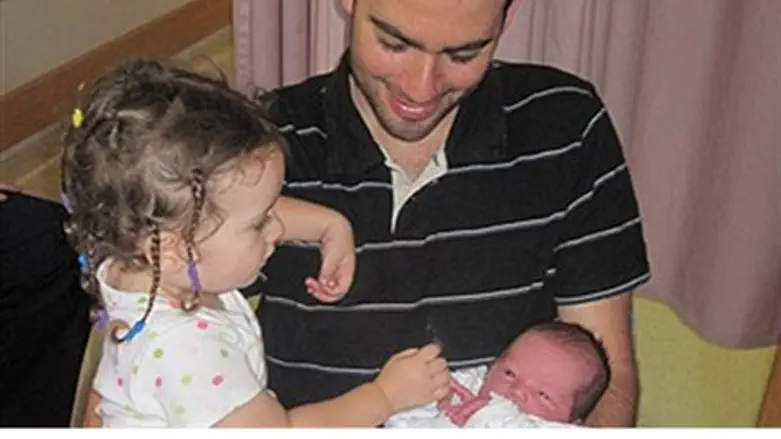
At a Hebrew University graduation ceremony this week, 32-year-old Asael Lubotzky, who was critically wounded in the 2006 Second Lebanon War by an anti-tank missile, received his doctorate in medicine, putting a remarkable cap in his story of recovery and heroism.
Former platoon commander Lubotzky spoke to Arutz Sheva about his decision to pursue medicine after having struggled with long recuperation from life-threatening wounds suffered in the line of duty, when Hezbollah terrorists fired a rocket directly at the APC (armored personnel carrier) he was in.
"Due to the fighting in Gaza and Lebanon and my extended recuperation in hospitals I was deeply moved by the profession of medicine, by the nurses and the physical therapy staff, and I decided to to join this wonderful world," said Lubotzky.
When asked if becoming a doctor will first require him to completely recuperate, he noted that "recuperation takes a lot of time and sometimes an entire life. Recuperating is a continuation of life...in many cases it continues for years and people need to continue their lives and deal with the effects."
According to Lubotzky, he chose to study medicine just a year after being wounded, balancing studies with intensive physical therapy.
"It's definitely very busy but the mission that stood before my eyes was to return to life and not to stay behind as a paralyzed wounded person. I remember feeling after the rehabilitation and the transfer to the hospital that if I was a paralyzed wounded person before, now I'm a student who is paralyzed at the same time. The title of student did a lot."
"The circle of giving"
Nine years since his injury, Lubotzky continues to undergo physical therapy, but the work to reconstruct his body is no longer the center of his daily schedule.
He remarked that his desire to be a doctor also "has an element of thanks to the Holy One blessed be He, and (a desire) to enter the circle of caregivers so that as they treated me, I will treat others. My patients see the iron (supports) on my legs and the crutches in my hands, and I tell them that we are in a circle, and if now I'm treating your kid, this evening I myself am going to another doctor."
"We're in the same circle," posed Lubotzky. "There's a circle of thanks, that I won't just be a receiver but also a giver."
Speaking about his ability to identify with patients, he noted, "when I see the suffering of a patient I hope and pray that my experience will help me feel the soul of the patient and be as empathetic as possible, and I hope that I will succeed to cope with it."
Lubotzky said he tries to put aside the media spotlight garnered by his heroic recovery, focusing on treating patients and being with his family.